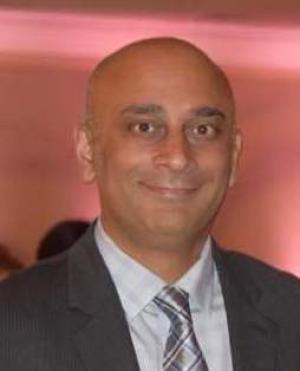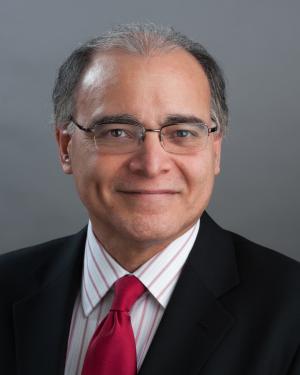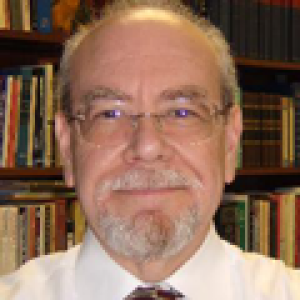Resources

Walking along the long stretch of beach, the cross-section of the dunes revealed the stringy roots of the foliage penetrating and crisscrossing below the surface. This suggests that despite the shifting of the sands comprising the dunes, the roots help anchor the plants and enable them to continue thriving. Similarly, deans can draw upon their knowledge of the school’s history and roots to maintain a certain stability despite significant changes taking place around the institution.

The 2017-18 Deans’ Colloquy was constituted by a diverse group of deans representing 11 schools in the USA and Canada. Drs. Deborah Krause (Eden Theological Seminary), Luis R. Rivera (Garrett-Evangelical Theological School), and Paul Myhre (Wabash Center for Teaching and Learning in Theology and Religion) were the facilitators. The group met in Mustang Island for the second half of the colloquy. One of the topics for reflection was: “the Dean’s leadership role in times of deep changes in theological education.” The Deans were given an assignment to spend 45 minutes walking around the beach to identify aspects of the physical environment that may evoke thoughts or visions on the topic. They returned and shared their findings in small groups and then in plenary. It was a rich conversation. The group decided to share some of their reflections in the Wabash Center’s blog series for Theological School Deans. Instead of presenting thoughts in one particular way, they decided to do it freely . . . like the wind . . . like the waves . . . . The next 10 posts in this blog series represent some of those reflections.

At many schools, the new academic year will begin with an interim Dean at the helm of the academic administration office. That's not a stretch for a guess as most deans in theological schools have a 4.3 to 4.5 year tenure. In most cases the interim deans will have come out from among the faculty---these are well-meaning, generous people willing to step up to the need of the moment. Most will likely not have previously served as dean, but will do a good enough job keeping the academic enterprise of the school going smoothly to some extent or another. They are to be thanked, for they'll give up a lot during their interim, and take on a responsibility that is critical to the institution; challenging, often thankless, and at times, overwhelming. Meanwhile, another group will step up to a different task: searching for the next dean. Before coming up with a list of questions to ask the candidates, the search committee will do well to answer the following questions for themselves: 1. How do we define success? Getting clear about what success means in your context and offering that vision to prospective deans is more fruitful than asking the question of them (e.g., "What is your vision of success for our school?" The honest answer to which is, "I can't know that yet."). What constitutes success is contextual to your school. The answer lies in the culture, shared values, academic intent, and the aspirations of your particular school. Some indicators of success are measurable, while others are aspirational. The one will keep you grounded, foster accountability, and inform strategies; the other will pull you forward---especially during difficult times. The clearer you as a search committee are about these, the more helpful in discerning your best choice among candidates. 2. What are the biggest challenges we face? While a search committee will put on a good face for a prospective dean and share all the good things about the school, a dean needs to know what challenges she or he will face coming to the position. To the extent the committee has done due diligence in identifying those challenges, has avoided self-referencing ("We're a great school because we believe we are."), and can be transparent and honest, will be the extent a prospective dean can discern whether or not there's a good "fit." That "fit," however, goes beyond personal likability, transactional familiarity, or cultural affinity. The best "fit" for a dean goes more to function than to role. All deans play the same role (they all have the same job description). Function, however, goes to the needs the school has at a particular point in its trajectory and within its contexts. A school in the midst of an institutional transition requires different functions of its dean than a school entering a period of development. A school requiring significant strategic re-organization needs a different dean than does a school in the midst of a crisis. No mature or experienced dean will be naive enough to think the job will be smooth, easy, or challenge-free. But deans need to know what the school requires of them that may not appear in the job opening announcement. The "right" dean will be the one who can help the school address its challenges. 3. In what areas must our new Dean create change and development; and how much change can we stand? Helping a school address its challenges will mean bringing about some level of change. A worthwhile conversation with a prospective dean will be about how well the school handles change and responds to challenges. If a school has change-fatigue from recent developments or transitions, it's not likely it will respond to an energetic, enthusiastic dean who sees herself as a "change agent," or to the impatient dean who "wants everything done by yesterday." Deans will of necessity bring about change in the institution---it's the nature of the job. How much change a school can stand is a product of capacity and willingness. Let the dean know where you stand. At the end of the day, one can only lead the willing. When it comes to making changes and following through, how willing is the school (Faculty, administration, Trustees)? 4. In what ways will the new Dean add value to our school? Let's face it, the hiring interview process is a process of seduction. Each party does its best to look good and be desired. Even the best-prepared search committee can get snookered by a slick candidate or fall in love with a personality. Secondary characteristics, inconsequential capacities (she's a good skier; he's an avid hiker; she knows Brad Pitt!), and "good feelings about" the candidate can tip the vote in favor of a safe, cool, or comfortable candidate. One question that can provide a corrective to bias is being clear about what value a particular candidate will bring to the school. What will the prospective dean bring to the institution that you need and which another cannot provide? 5. What was the President's relationship with the last dean? What will be the new relationship? While the search committee cannot take responsibility for the relationship between a president and dean---past or future---it is critical that the importance of the relationship be recognized. To a certain extend, a President's relationship to the dean will make or break the job. A common question during the search interviews with deans is about the triangulation between dean, president, and faculty. Typically, the question is couched in terms of "How strong an advocate will you be for the Faculty?" While insecure faculty members may wish to hear that will be the new dean's primary focus, a seasoned dean will likely take a different perspective. Certainly an effective dean will be supportive and a resource for the Faculty in its work of research and teaching. But deans are stewards of the institution, and not advocates of one group over others. At the end of the day the dean needs to ensure that decisions benefit the institution in order to benefit all. That stance inherently sets the dean up for dealing with perpetual internal competing interests and needs. To the point, "Making Faculty happy is not my job," may be the most honest response. Happy interviewing! There's a good dean out there for your school. Choose wisely.

Most theological school deans enter the office from an academic field of study---religious, theological, or ministry--distant from the field in which they now hold responsibilities: academic administration. Scholarly research soon takes a back seat to less esoteric and more pragmatic research. Spreadsheets, reports, budgets, and schedules become the daily tools to consult. It's time to trade in your Logos Bible software for a robust project management software, a tolerable student management system, and a handful of administrative apps to bring order out of the chaos that is your new normal. Theological school deans will need to broaden their horizons beyond the scope and focus of their academic guild. They need to become knowledgeable and stay current, on a wide religious landscape in order to ensure the school's academic programs remain relevant and address the real current challenges of their constituents---congregations, denominations, and students. The training of future religious leaders requires not merely understanding current realities but anticipating future trends and challenges. [caption id="attachment_211996" align="alignleft" width="300"] Computer Key orange - Research[/caption] Here are links to research sites that can help the dean keep her or his finger on the pulse of the religious landscape. How well do your curricular courses of study reflect or address what you find at this sites? The Association of Religion Data Archives A data nerd's and religion researcher's dream. Contains international and national data and statistics on religion, religious groups, and denominations, including data on U.S. congregational membership. Includes informative educational American religion timelines, and an interactive Community GSI maps and profile reports section. You can build your own congregational or student profile interactive pin map as well as viewing selected maps and areas of interest. America's Changing Religious Identity from the Public Religion Research Institute PRRI’s research explores America’s changing cultural, religious, and political landscape. PRRI’s mission is to help journalists, scholars, thought leaders, clergy, and the general public better understand debates on public policy issues, and the important cultural and religious dynamics shaping American society and politics. Cool Congregations From Interfaith Power & Light, the Cool Congregations program is designed to support faith communities as they “walk the talk” by reducing their own carbon footprint, thus helping to cool the planet. A side benefit of the program is the ‘multiplier effect,’ as congregants are encouraged to model the same energy saving behavior at home that they see at their congregation. Collegeville institute on Vocation and Collegeville Institute: Exploring Vocation in Community The Seminar on Vocation across the Lifespan brings together theologians, social scientists, and ministers to develop a more comprehensive theology of vocation from infancy through old age. The goal of the Seminar is to create resources for congregations and seminaries on the evolving nature of Christian faith and identity throughout the stages of the lifespan. Exploring Vocation in Community was developed in 2011 to serve the broader life of the church and ground the theological work of the Seminars in the lived experiences of Christians in congregations. 50 Ways to Get a Job What are your graduates going to do with that theological degree they just received? Truth is, in five years 50% of them will probably not be in ministry--and a goodly number will experience forced termination along their professional ministerial lifespan. 50 Ways to Get a Job is an interactive site addressing the span of vocational arc. Studying Congregations If you haven't come from the field of practical theology you may not be familiar with the long-standing work of the Studying Congregations projects. The site contains great tools and resources for seminarians to study congregations. Many of the frameworks and guides for studying congregations can be applicable for studying your own theological school---its context and mission. Religious Worlds of New YorkReligious Worlds of New York News from my home town. No city or region of the country is as religiously diverse as New York. The site offers many educational resources on religions and interfaith dialog. Given the new data from the America's Changing Religious Identity (see link above), this may be a portend of things to come. How well is your theological school preparing ministers for a more diverse world? Sunday Assembly The Sunday Assembly claims to be the world’s fastest growing secular community. The Sunday Assembly was started by Sanderson Jones and Pippa Evans, two comedians who were on the way to a gig in Bath when they discovered they both wanted to do something that was like church but totally secular and inclusive of all—no matter what they believed. The first ever Sunday Assembly meeting took place on January 6th, 2013 at The Nave in Islington. Almost 200 people turned up at the first meeting, 300 at the second and soon people all over the world asked to start one. How's that for "church growth"? Association of Theological Schools in the United States and Canada Keeping up with the latest developments in theological education is critical to the dean. The Association of Theological Schools (ATS) is the accrediting agency for 270 graduate schools that offer post-baccalaureate professional and academic degree programs to educate persons for the practice of ministry and for teaching and research in the theological disciplines. The Commission on Accrediting of ATS accredits the schools and approves the degree programs they offer. If you're new to the deanship, ATS offers much more than you may imagine. Wabash Center for Teaching and Learning in Theology and Religion Bookmark this site! The Wabash Center supports teachers of religion and theology in higher education through meetings and workshops, grants, consultants, a journal and other resources to make accessible the scholarship of teaching and learning. All Wabash Center programs are funded by Lilly Endowment Inc. If you're new to the deanship, be sure to sign up for their Colloquy for Theological School Deans! What other helpful research sites for deans have you discovered? Share your stuff.